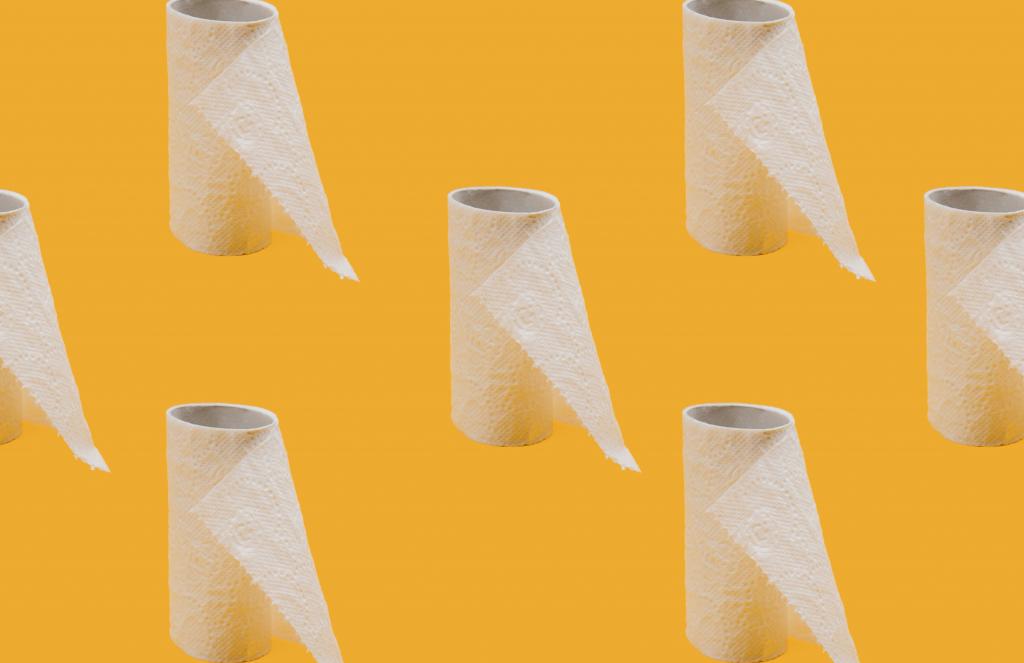Thessaloniki gets ready for its metro launch in November
The underground rapid transit lines have been under construction for almost two decades due to various project delays
 TheMayor.EU logo
TheMayor.EU logo 
The first toilet paper in the western world came with the spread of newspapers and industrial paper manufacturing
The city would like to remind everyone that the sewer system is not a boundless void, but a delicate mechanism that clogs up easily
Stuttgart will celebrate Toilet Paper Day on 26 August, an occasion intended to raise awareness on the proud history of this product, while also shedding light on citizens' damaging disposal habits.
Local authorities are clear, toilets are not garbage cans and despite Germany’s long history of toilet paper production, people still need to learn to respect the sewer system, because it is not a boundless void, but a delicate mechanism that clogs up easily.
While large-scale toilet paper production started in China in the 14th century, it would take Europeans at least another 500 years until its widespread adoption. It became common with the spread of newspapers and the advent of industrial paper manufacturing.
Toilets are a hygienic standard in Europe, but this has not always been the case. Their gradual integration is linked to two very important things: the 1775 Scottish inventor Alexander Cumming’s patent on the water closet (WC), a flushable toilet, and the gradual expansion of sewer systems around Europe in the next 200 years.
The first indoor toilets, or water closets, came to Stuttgart in the 19th century. During this period, the city’s sewer system also came into being and the first homes were connected to the waste disposal network. The city continued the expansion of the system until the 1960s when they unveiled four wastewater treatment plants.
This made water closets (toilets) the preferred facility for urban residents, as previously, most households used latrines. The softer paper we know and love today came with the advent of toilets and sewers, as the previously-used coarse newspapers clogged the pipes.
Now, the city operates a sewer network of some 1700 kilometres, as well as four wastewater treatment plants.
According to a press release by the city, today toilet paper has become indispensable in everyday life. The text continues: “This became abundantly clear since March of last year, with the first lockdowns of the pandemic: While gun purchases in the USA went through the roof, in Germany there were widespread hamster purchases and shortages on hygiene items".
The city needs the help of all citizens here, because, unfortunately, wastewater plants have a hard time processing things other than wastewater. The problem comes from using more robust types of paper, that do not have enough time to decompose properly on their short journey between the flush and the sewage treatment plant. This causes blockages, both in the smaller pipes and the plants themselves.
Wet wipes are the new fad in Stuttgart’s WC’s and they are causing a major problem for the city. This is because they are made from tear-resistant fibres and even if they can pass through the sewage plants, they end up polluting the exit bodies of water.
It is costing the city more and more money to repair pipes, bottlenecks and pumps clogs. City authorities point to the label ‘flushable’ as guidance for whether a hygiene product can go down the drain. Wet wipes, they stress, are not flushable and should go into regular waste. The same goes for cotton swabs.

The underground rapid transit lines have been under construction for almost two decades due to various project delays

Now you can get your wine in Talence by paying directly in Bitcoin

That’s because the state has to spend money on updating the railway infrastructure rather than subsidizing the cost of the popular pass

Rethinking renewable energy sources for the urban landscape

The examples, compiled by Beyond Fossil Fuels, can inform and inspire communities and entrepreneurs that still feel trepidation at the prospect of energy transition

Now you can get your wine in Talence by paying directly in Bitcoin

The 10th European Conference on Sustainable Cities and Towns (ESCT) sets the stage for stronger cooperation between the EU, national and local level to fast track Europe's transition to climate neutrality.

At least, that’s the promise made by the mayor of Paris, Anne Hidalgo

The underground rapid transit lines have been under construction for almost two decades due to various project delays

At least, that’s the promise made by the mayor of Paris, Anne Hidalgo

Hostal de Pinós is located in the geographical centre of the autonomous region

Despite its church-y name, the district has long been known as the hangout spot for the artsy crowds

Urban dwellers across the EU are having a say in making their surroundings friendlier to people and the environment.

Forests in the EU can help green the European construction industry and bolster a continent-wide push for architectural improvements.

Apply by 10 November and do your part for the transformation of European public spaces

An interview with the Mayor of a Polish city that seeks to reinvent itself

An interview with the newly elected ICLEI President and Mayor of Malmö

A conversation with the Mayor of Lisbon about the spirit and dimensions of innovation present in the Portuguese capital














